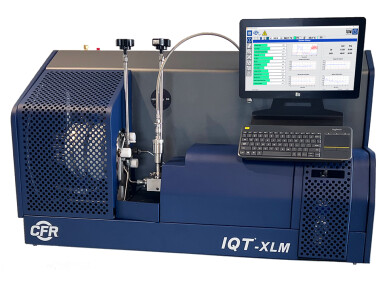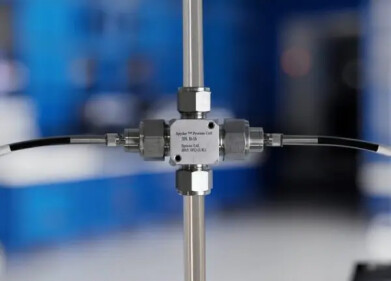Analytical Instrumentation
How Does the Oil Industry Use Blockchain?
Mar 08 2018
Every day, oil tankers carrying millions of barrels of crude set sail for ports across the globe. While the cargo alone can be worth over US$100 million, sea captains must also guard the infamous "bill of lading" document under lock and key. For centuries it's been used to verify ownership of a commodity and sanctify business between buyers and sellers.
Giants call for reform that's centuries overdue
Now, some of the world's biggest oil entities are pushing for reform. Along with traders and banks, companies like BP and Shell want to replace the bill of lading system with a faster and more cost-efficient solution. Ultimately, it's part of a ploy to trim costs, maximise profit margins and simplify the transaction process.
“The way we do our title transfers and post trade execution is very heavy on paperwork,” comments Alistair Cross, global head of operations Mercuria Energy Group Ltd. “And the paperwork hasn’t really evolved over the last couple of hundred years.”
From Bitcoin to barrel
One solution has landed firmly in the spotlight, with experts predicting that it could soon replace the system that cargo ships have been relying on for centuries. It's known as blockchain and uses a shared online ledger to track and verify cryptocurrencies like Bitcoin.
The main draw is the ability to record transactions using encryption, which heightens security and allows each deal to be reviewed by a network of users. While most oil traders already rely on digital technology to store and review their own data, blockchains force buyers and sellers to operate from a communal record book. This champions transparency and eliminates the risk of both routine errors and fraud.
Slashing transaction times
The switch has garnered support from a consortium of producers, with entities like BP, Royal Dutch Shell and Statoil ASA currently in the process of developing a blockchain platform that would be used to record oil trades. The system has already been used to track data associated with a tanker of crude that was sold three times before reaching China National Chemical Corp, its final holder. Verifying the transactions took just 25 minutes, which represents a huge saving from the usual timeframe of around three hours.
“In our business, you have people managing transactions all over the world,” comments Souleima Baddi, an executive at French multinational banking and financial services company, Societe Generale. He asserts that with a blockchain system in place, “people will perform their tasks immediately, directly on their phone or on their iPad where they do their job”.
Want to know more about the latest oil industry tenors? Introducing the latest analytical technique, 'Current Application Trends in the Petroleum Industry Using EDXRF and Process XRT Gauge' champions an approach that's fast, simple and efficient.
Digital Edition
PIN 25.5 Oct/Nov 2024
November 2024
Analytical Instrumentation - Picturing Viscosity – How Can a Viscometer or a Rheometer Benefit You? - Sustainable Grease Formulations: Evaluating Key Performance Parameters and Testing Method...
View all digital editions
Events
Dec 03 2024 Dusseldorf, Germany
Dec 08 2024 Anaheim, CA, USA
Turkey & Black Sea Oil and Gas
Dec 11 2024 Istanbul, Turkey
Dec 19 2024 Aurangabad, India
Jan 20 2025 San Diego, CA, USA



















